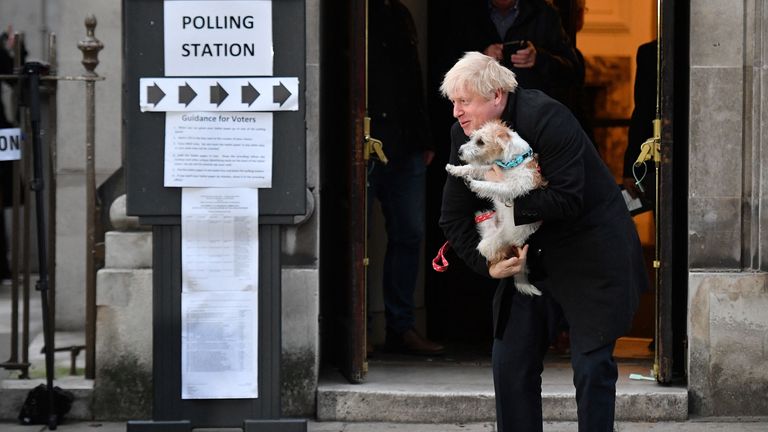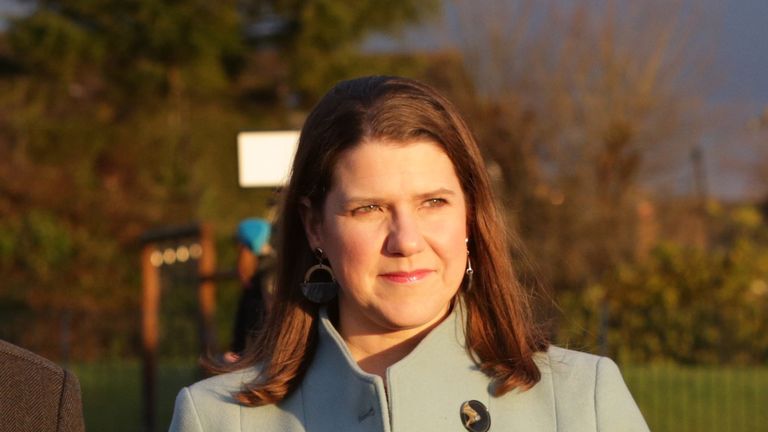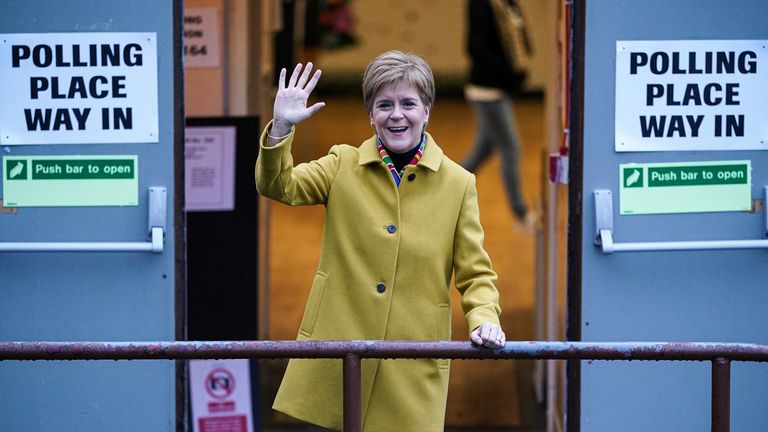This article is more than
6 year old
oters are going to the polls in the third general election in the UK in under five years - and the fourth in under a decade.
Conservative Party leader Boris Johnson cast his ballot this morning, heading to a central London polling station with his dog Dilyn.
Labour leader Jeremy Corbyn was greeted by a small group of supporters and gave a thumbs up to the cameras when he arrived to vote in north London.


While the Liberal Democrats' Jo Swinson and head of the SNP Nicola Sturgeon both voted in Glasgow.
Today marks the end of a six-week campaign, with the nation now able to decide who should form the next government for up to five years.
A total of 650 parliamentary constituencies are being contested in England, Scotland, Wales and Northern Ireland, with polling stations open from 7am until 10pm.
The total electorate is around 46 million and there will be 40,000 polling stations.
Unusual locations include several pubs, a hair salon, a laundrette, a chip shop and a windmill.
When all the votes are counted after the polls close, a party needs 326 seats for a majority in the Commons without relying on support from smaller parties.


It is the first December general election since 1923 and the first winter election since February 1974, when Edward Heath and the Conservatives were defeated by Harold Wilson's Labour Party.
Of the last three general elections, in 2010, 2015 and 2017, only one - when David Cameron triumphed in 2015 - has produced a clear-cut winner with one party securing an overall Commons majority.
In 2010, after the Conservatives fell short of a majority, Mr Cameron went into a coalition with Nick Clegg's Liberal Democrats.
And in 2017, after the second hung parliament in seven years, Theresa May was forced to do a deal with Northern Ireland's Democratic Unionist Party (DUP) to keep the Tories in power.
After leading in the opinion polls throughout the 2017 campaign, the final results saw the Conservatives win 318 seats, losing 13. Labour won 262, gaining 30.
The SNP's tally fell from 56 to 35 and the Liberal Democrats were up from eight to 12. Turnout was 68.7%.
The Conservatives are fighting 635 seats, Labour 631, the Liberal Democrats 611, the SNP all 59 in Scotland, Plaid Cymru 36 in Wales, the Green Party 474 and Nigel Farage's Brexit Party 276, having withdrawn from all the seats currently held by the Conservatives.
He is the first Labour leader to fight more than one election as leader since Tony Blair, who won in 1997, 2001 and 2005, and the first since Neil Kinnock to fight a second campaign after an election defeat.
And what of the weather for this first winter election for almost a century?
The Sky News weather forecast is for most places to be rather chilly with prolonged rain.